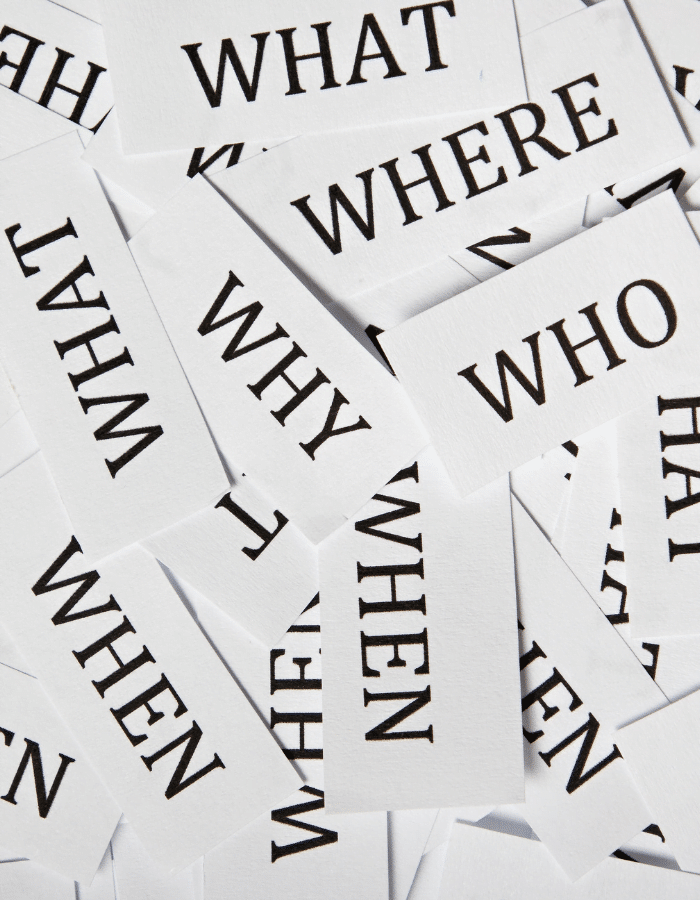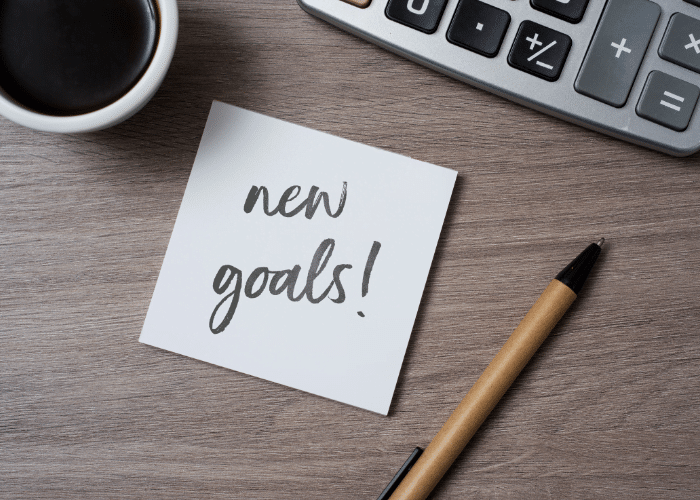Do you ever find yourself saying ‘I know what to do… but I just don’t do it’?
If this sounds familiar, you’re not alone. When it comes to building habits and creating change, for most of us the problem isn’t a lack of information, it’s a lack of implementation.
Some people will tell you that it takes 21 days to form a new habit, others will say it takes 66 days whilst a few optimistic folk will claim 7 days is enough to embed a new behaviour. My personal experience is that I can build a habit of binge watching Netflix, or playing pointless games on my phone in as little as one repetition, whereas the habits of regular writing or planning my day has taken a little more work.
The good news is that there are a number of techniques you can harness to increase your chances of building self-serving rock solid habits that become ‘just a part of you do’. In this article we’ll explore three of these techniques.

1. Principle of +1
How many times have you decided to get a grip of your food or fitness and thrown yourself full on into a diet or exercise regime… only to crash and burn after a few days?
Some cynics might say that this characteristically human behaviour is what the diet and fitness industry are based on, as we’re lead to believe that the only way to achieve success is by going all in.
But for most of us this approach leads to a frustrating cycle of all or nothing, which usually translates to brief periods of ‘all’, followed by long spells of ‘nothing’.
But there’s an alternative approach that spans the gap between the extremes of all and nothing. An approach that focuses on consistent progress rather than temporary flashes of perfection.
Try this exercise:
On a scale of 1 to 10, where 1 is completely off the wagon and 10 is perfect, how would you rate your diet at the moment?
Let’s say you scored yourself a 3 out of 10 because despite everything else, you’re at least still eating breakfast and having a couple of pieces of fruit a day. The knee-jerk reaction to reaching the ‘I’ve had enough of this’ threshold is to throw yourself full on into a restrictive diet, giving up your favourite foods and counting every scrap of food that passes your lips. This is the equivalent of leaping from a 3 to a 10.
This can be unpleasant, unsustainable, and as it turns out, unnecessary.
Instead of jumping straight to a 10, ask yourself what would move you from a 3 to a 4?
What small thing could you do that would be easy and sustainable enough to put into practice, yet would still represent progress?
This one thing might not transform your life, but the approach removes the burden of pressure, and allows you to embed new habits before considering how you could move from a 4 to a 5, then a 5 to a 6, and so on.
The Principle of +1 leaves room for deviations without them derailing you completely.
When you see things in the extremes of success or failure, any slip up can result in the inner narrative of ‘if I have the biscuit I’ve failed, and I may as well give up and start again on Monday!’. This is the classic tell of an all or nothing approach. When you notice you’re falling into this thinking trap, catch yourself and repeat the mantra ‘progress, not perfection’.
2. Get Specific
Vague intentions such as ‘eat more healthily’, ‘do some exercise’, or ‘study more’ rarely translate into real world action unless some specifics are applied. The brain doesn’t work well with vague goals, but give it a well formed outcome to work towards and it becomes like a heat seeking missile.
If you can picture yourself carrying out the process in your mind’s eye, you are far more likely to be able to do it in real life. The three variables we need to pin down are What, When and Where.
For example, one of my hydration habits is to drink two glasses of water first thing in the morning at my kitchen sink. Right now in my mind I can see myself drinking those glasses of water, bleary eyed having just got out of bed, standing right next to my kitchen sink.
Aristotle told us that we are what we repeatedly do. Excellence, therefore, is a habit, not an act. Do enough small things consistently enough, and you can achieve anything. But we need to be specific about what these small things are. For me, just drinking 2 glasses of water in the morning isn’t going to be enough to help me reach my daily energy and health goals, but if I do it alongside a few other habits it makes a noticeable difference.

Try this exercise:
Think of a good habit you already have, or have had in the past, and write it down in the form of What, When and Where. Perhaps you already have a piece of fruit with your lunch every day… your 3W habit might be ‘eat a piece of fruit immediately after finishing my lunch, at my kitchen table’.
Practice this with a few other habits you already have, and then think about some of the additional processes that would help you achieve your goals. Take some of the +1s you wrote down in the previous exercise and put them into the 3W format. Paint the picture in your mind’s eye of you doing carrying out these actions so that you’re confident you can turn it from a vague intention to solid reality.
3. Connect the What to the Why
At the point you make a decision to pursue a new goal or make some changes in your life your levels of motivation are high. It’s exciting, it’s new, and you’re energised by the prospect of moving away from the thing that’s hurting you, or moving towards some exciting and improved future. There’s a saying that goes ‘with a strong enough why, you will overcome any how’.
So we put up with the discomfort of denying ourselves things that give us instant gratification and the extra energy involved in doing things differently, because our ‘why’ is motivating us.
But as time passes the pull of this big emotional reason begins to wane, and the new habit can start to feel more like a chore – things that we simply feel ‘should’ do, which quickly become the pressure-release valve for when we’re feeling stressed. With all the other things that are causing stress in your life this is one thing that you can control. Nobody can tell you what to eat, how much to exercise or when to study…
And so the connection between the What (the habit) and the Why (the reason for wanting to achieve the goal) is broken.
Instead of putting yourself at the mercy of this ebb and flow of motivation, continue to develop the connection between the What to the Why.
In neuroscience, Hebb’s Law tells us that what gets fired together gets wired together. By consciously thinking about the emotional reason for wanting to achieve the goal at the same time that you are carrying out the new behaviour, you fire both neural circuits in your brain which gradually wires them together.
This is the missing component in the ’21 days to build a habit’ myth. Without paying attention and giving the new behaviour intention, you don’t create the necessary neural changes that turn it into ‘just something that you do’.

Try this exercise:
For each of the habits you have written down that you want to develop, ask yourself what the benefit is. What do you hope to achieve by consistently adopting this new behaviour?
Not just the physical changes you hope to see, but what this would really mean to you on an emotional level.
Write this down, and each time you do the new thing bring the reason to the front of your mind.
We need to keep in mind that our brains will always put our need to survive before our desire to thrive. We’re suckers for the path of least resistance, but with a bit of care and attention it’s possible to step out of our own way, build new rock solid habits and achieve transformational changes that we can be proud of.



